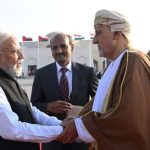The situation in Lebanon has been described as “extremely dangerous and worrying” by the EU’s top diplomat, Josep Borrell. This has raised concerns about the possibility of another full-scale war erupting in the region. In a recent discussion, Virginijus Sinkevičius, a Lithuanian MEP from the Greens, Maria Martisiute, a security and defense analyst from the European Policy Centre, and Matthew Robinson, director of the Euro-Gulf Information Centre, weighed in on the potential escalation of conflict in Lebanon.
During the discussion, the panel debated the implications of Borrell’s warning and the gravity of the situation in Lebanon. They also touched upon the recent visit of Ukrainian President Volodymyr Zelenskyy to the US, where he presented his “victory plan” to secure military support from Western allies. Martisiute emphasized the need to focus on achieving victory in conflicts, which she feels is lacking in NATO’s approach. Sinkevičius pointed out the reluctance of leaders to acknowledge the possibility of Russia losing in Ukraine, highlighting the need for a stronger stance against aggressors in the region.
The panel’s discussion shed light on the growing concerns about the potential for a full-scale war in Lebanon and the need for decisive action to address the escalating situation. With Borrell’s warning serving as a wake-up call, there is a sense of urgency among policymakers to address the root causes of conflict in the region and prevent further escalation. The visit of President Zelenskyy to the US also highlighted the need for increased military support from Western allies to bolster Ukraine’s defenses against Russian aggression.
In analyzing the current state of affairs, the panel emphasized the importance of taking proactive measures to prevent the outbreak of full-scale war. By addressing the underlying issues fueling conflict in Lebanon and other regions, policymakers can work towards sustainable peace and stability. The panel also underscored the need for Western allies to show solidarity and provide necessary military support to countries facing external aggression, such as Ukraine, in order to deter further escalation of hostilities.
As discussions continue on the global stage regarding the situation in Lebanon and other conflict zones, the importance of proactive diplomacy and decisive action cannot be understated. By addressing the root causes of conflict and supporting countries under threat, the international community can work towards preventing the outbreak of another full-scale war. The insights shared by the panelists serve as a reminder of the need for unity and collective action in the face of growing threats to peace and security.











